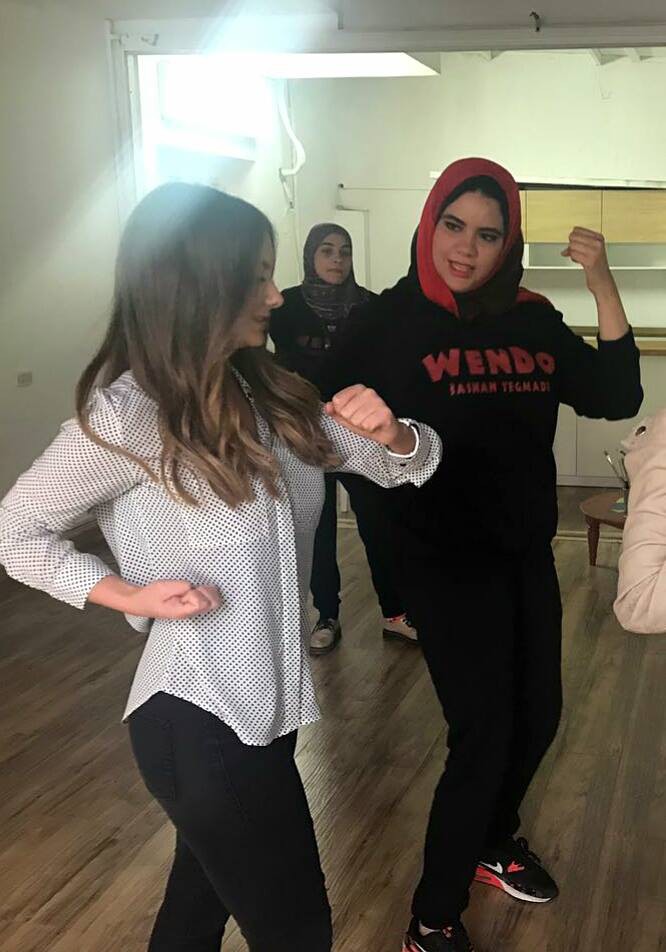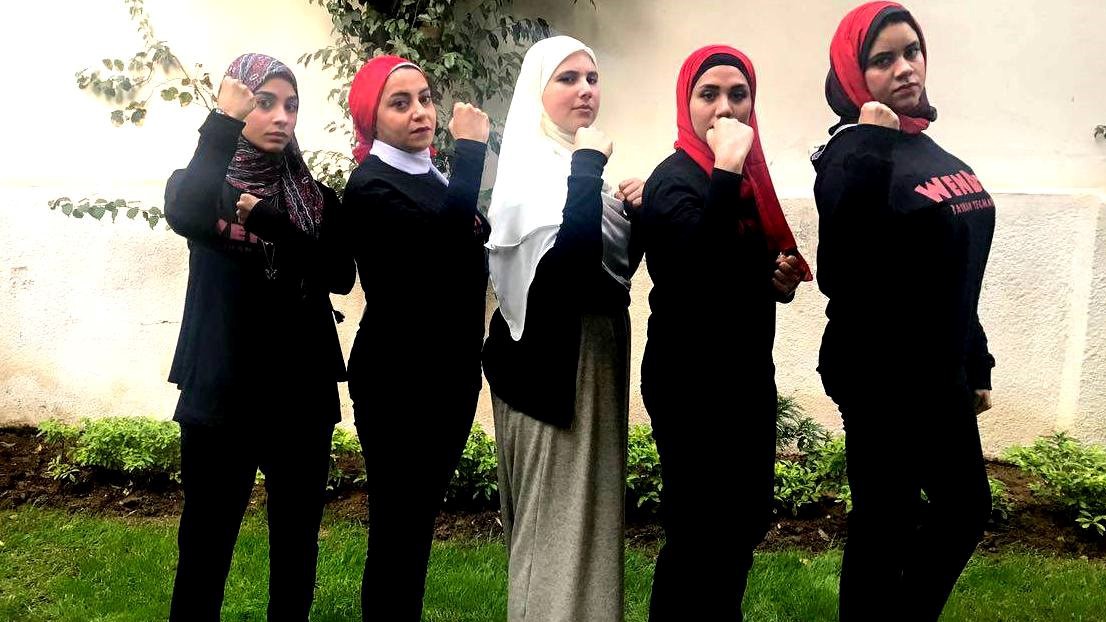Sitting down with these five normal Egyptian women, no man would have guessed that every single one of them could have kicked his arse. But Amany, Alaa, Yasmine, Manal and Maysoun, could do just that and more. As trainers of the form of self-defence called ‘Wen-Do,’ these women all have toolboxes full of ways to deal with unwanted advances and other forms of harassment.
What makes Wen-Do different to other forms of self defence is that it doesn’t just focus on physical responses to assault, but provides women with more subtle skills to empower themselves during their day-to-day life, such as through body language and verbal responses. According to Maysoun, “No previous experience of martial arts is needed, anyone can do it. In just 10 hours you can learn real skills to apply to real situations.”

Something that all of these women agree upon is the fact that confidence is central to protecting yourself. Manal told a story of a friend who had been harassed, “she started crying and told me that she had thought of a thousand things she could have done in her head, but she wasn’t brave enough to do anything so she just let it happen.” This lack of self-belief is worsened when surrounded by a society that judges women who speak out. Maysoun says, “people tell you to shut your mouth or you will be a scandal, but then when you get home you feel bad that you didn’t stand up for yourself.”
Wen-Do aims to teach women about their self-worth so that they have the confidence to defend themselves, the trainers’ many personal stories are evidence of its success. Amany tells us that she never used to respond to verbal harassment, “but recently there was a man in the station who called me ‘honey’ and I responded telling him to have some self-respect, and he was just so shocked he didn’t know how to respond.” Yasmine has found a similar boost to her confidence, “if someone is staring at me, I now stare right back at them. It is simple things like this that allow you to have power over the situation.”
Body language is very important, “if you have a strong, confident walk, people are actually less likely to harm you because they can see your confidence,” Amany claims. The ‘strong pose’ they teach requires you to stand with both feet grounded on the floor hip-distance apart, one foot slightly in front of the other and knees slightly bent. Perfecting this stance alone inspires self-confidence.
Wen-Do is designed by women, for women. And currently these trainers are in the process of developing it to fit the needs of Egyptian women in particular, with more focus on body confidence and teaching women the legal rights they have in defending themselves. “Being trained by women also means that trainers and students can relate as they have been through the same experiences,” Manal suggests, adding “it also means that the physical skills are designed with a women’s physique in mind. We might not be as physically strong as men, so we have to learn to use their weaknesses with our strength.”

The Wen-Do women demonstrated to us that the weakest places to aim for are the nose, the throat, the sternum (unless the man is overweight) and of course the groin. Using simple punches towards these specific targets or a knee to the groin allow you to overpower someone much larger. According to Manal, “Wen-Do also teaches that you should trust in your instincts if you feel something is wrong,” Maysoun adds, “sometimes the best thing to do in a situation is to run instead of putting yourself in danger.”
After undertaking situational roleplay allowing women to deal with any specific problems they might be facing, Wen-Do classes end with the symbolic ‘breaking of the wood’. Each student breaks a block of wood with their hands and takes home the pieces of wood as a reminder of what they are capable of, for Alaa, this is her feedback.
Maysoun perfectly sums up the impact of Wen-Do on her life, “everyday is a battle in the street. After Wen-Do I realised that it is my right to walk in the streets and it is my right to react.”
To find out more about Wen-Do contact Schirin at SchirinWenDo@gmail.com

